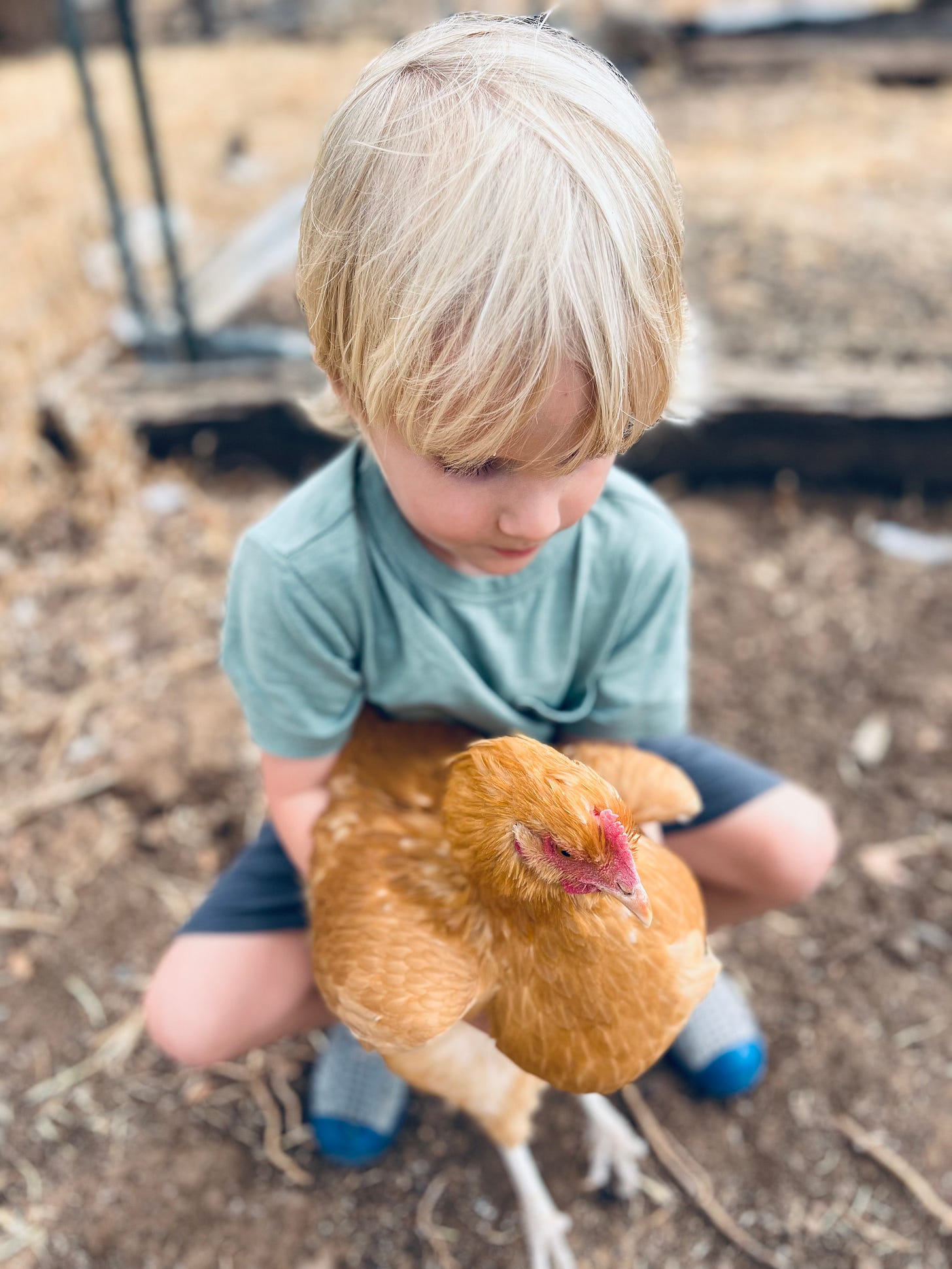Song pairing for today: Two songs I can’t get enough of this month are John Mark McMillan’s “Deep Magic” and Andy Squyres “Death Defying Joy.” These songs feel like cousins. It’s all there: order, disorder, reorder, and the angsty but deep/unmistakable trust of a child in a Father.
Hi friends, old and new. Thanks for coming along, for reading, and being willing to engage on this amazing and awkward topic. I interrupt my already-interrupted series to poke in with some benign laments about September and a few thoughts on the unexpected (also unsurprising) direction sobriety from alcohol has taken me so far.
September this year held COVID, turning 38 in bed with COVID (I have blurry memories of eating a slice of lemon meringue pie and admiring a Polaroid picture by my nine-year-old son—after I blew out the candles, he re-lit the “3” and “8” and spent a precious slice of film which now hangs over his bed), a tonsillectomy for my seven-year-old son, and another cold right after. I type these words while fasting from Afrin with a rolled-up tissue shoved up my nostril, and I screeched into October like skinny-girl-Jaime screeched down the hot, bumpy metal slide of the 90s—full of splinters from the climb up, sweaty, and a little disoriented. A little forgetful of who I am and how I got down here without blacking out. Or did I?
We’re months into a renovation of a sizable chunk of our house. Any previously useful rhythms are on pause as I handwash the dishes or remember to use paper plates, scratch around for private corners in our current living space, and scratch in the litter box on behalf of my cat who still hasn’t figured out how to cover her poop.
Despite the daily use of dishwashing gloves and forgetting all useful rhythms, I’m still keeping my family alive, reading a lot of Pete Enns, eating more protein, and feeling delayed anger and some overdue joy, too. I’m processing how sobriety has me knocked loose about growing up evangelical. These days my recovery is tugging on a few new threads—easy-breezy concepts like my OCD-style salvation prayers, constant fear of going to hell, purity culture, domestic labor and mental load aka my dusty tradwife aspirations (read my 2008-2011 Facebook status updates for proof), and sifting for any gems left in the wasteland of awful marriage advice (was it ever directly given, or just assumed/absorbed? both?) usually given by those only a little less wet behind the ears.
Why did we need to think we had it all figured out? And why were we so gosh-darn mean about it? It’s a lot to wake up from. I’m making space for myself and for you. I’ve needed to sit with it before rushing to “but what about the good?” And in that I’ve been able to actually see the good, not gaslight myself out of grief. One day at a time.
I know many church kids who have similar laments from our teens and twenties. We thought we knew so much, and we were so full of fear. We were duped but we also all played the game.
With ache and hope Kristen LaValley sums this up in her ongoing series on deconstruction, particularly in “How Evangelicalism Wore a Generation Out.”
The Evangelical Church raised two generations of kids (not coincidentally - the age group that largely represents the deconstruction landscape : millennials and gen-x) in a tradition that taught an imbalanced theology of sin and hell and hyper-fixated on the end times as a mode of creating converts. Pastors and evangelists used shock tactics, heightened emotional environments, moralism, and fear to create converts and it worked, but it didn’t necessarily stick.
If you were a teenager in the 80s, 90s, and early 2000s, your faith was formed by stories of martyrs, both overseas and in high school classrooms. We called ourselves Jesus Freaks and fantasized about what we’d do when we were asked the inevitable question with a knife to our throats, Do you believe in God? We read The Left Behind series and it became our doctrine. We looked to the skies and lived our lives expecting Jesus to show up in any moment. We feared he’d reject us from heaven forever if he came back when we were sinning so we gave up our music, our entertainment, our fun, lest one little gray area decision lead to our eternal damnation.
We lived with shame and called it conviction.
I’m leaving this here with more questions than answers but also more freedom and less fear—finally. It feels good but also a bit scary to realize how intertwined all of this is—sobriety from substances and compulsions, emotional sobriety, spiritual sobriety. Sober-mindedness. There are no true compartments.




